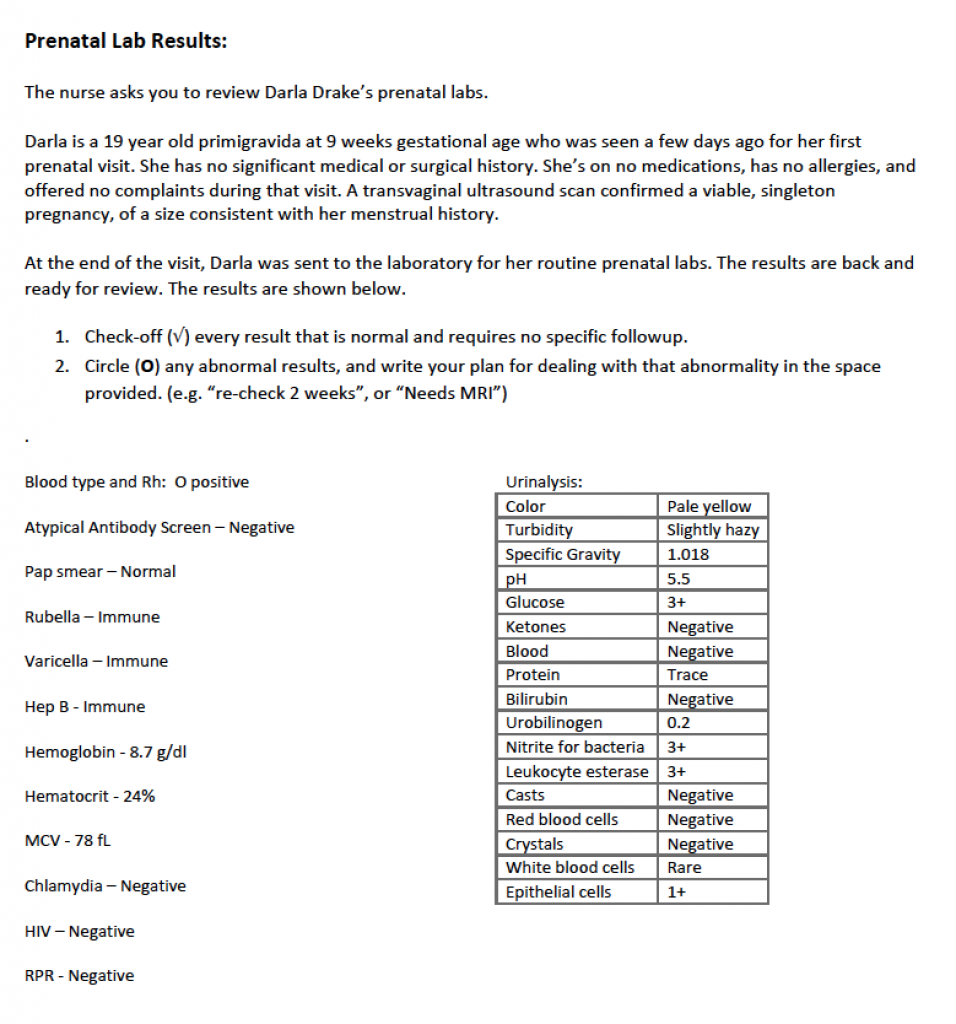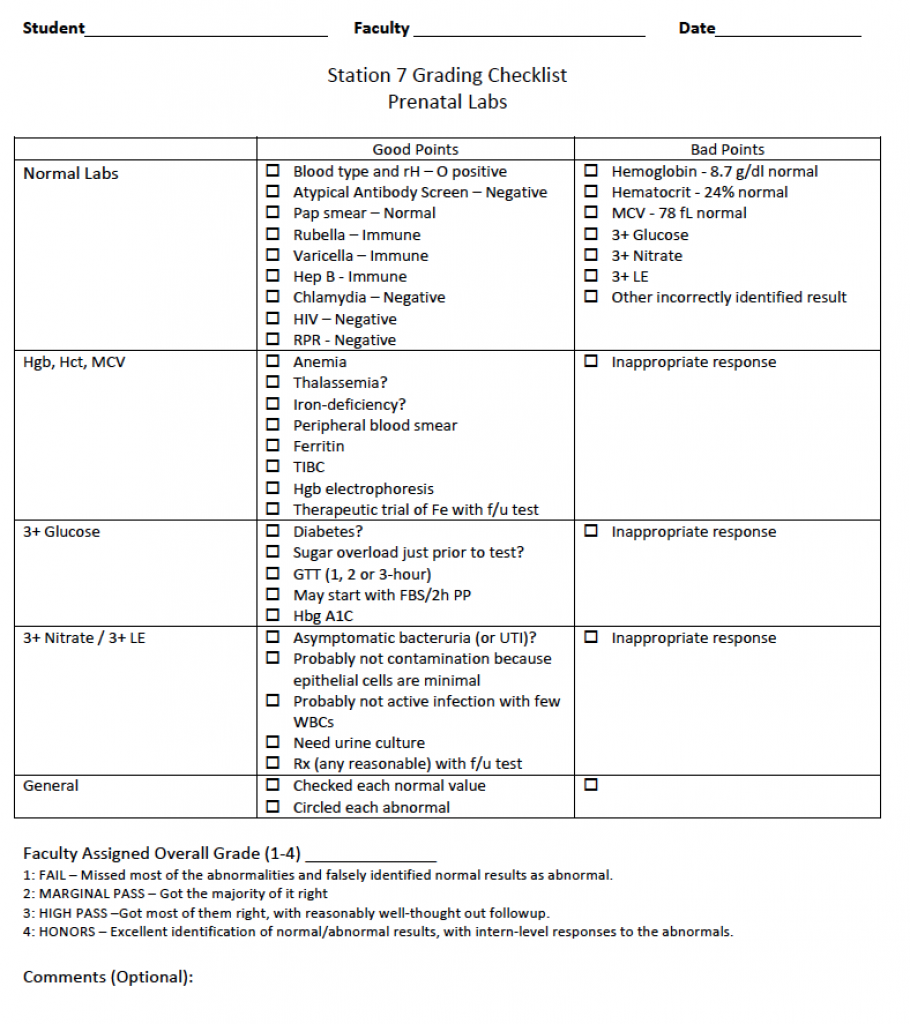This OSCE station gives the student a copy of recent prenatal lab results at a 9-week gestational age visit.
The student is asked to review the labs, identify abnormal values, and write down a brief plan for managing any abnormality.
This seems like a reasonable task for the students:
- It is the 5th APGO Educational Objective for Undergraduate Medical Education (“Explain the normal physiologic changes of pregnancy including interpretation of common diagnostic studies.”)
- The students are all generally familiar with pregnancy lab results, having spent time in the OB clinics.
- Since our OSCE is “open book”, the student can look up any lab value they are questioning, if they don’t remember the normal pregnancy values.
Logistically, this station has worked out well. As it is a paper-pencil exercise, it requires no one-on-one faculty supervision, and it can be easily graded at a later time.
Here is a downloadable pdf for this station:
Here is the descriptor, which each student receives:

The faculty grading sheet for this module is here:

As written, three significant abnormalities are present: anemia, bacteruria, and glycosuria. In grading the student management plans, I recognize that there are a variety of good clinical responses for each of these issues. So I would accept any reasonable approach to the problems. I would not accept everything. For example, if a student proposed checking a fasting glucose at 20 weeks gestation, that would not be OK, since there would be too much delay in what might easily be a previously undetected Type II DM.
The abnormalities are pretty easy to change, so that there might be only two major issues instead of three…or there could be different issues.
Results
This station has proven to be a pretty good discriminator between the students. Most of them do reasonably well on this station, but they may stumble by:
- Missing one of the abnormalities.
- Not being aggressive enough in following up abnormals.
- Over-reacting to trivial issues (e.g. trace protein)
